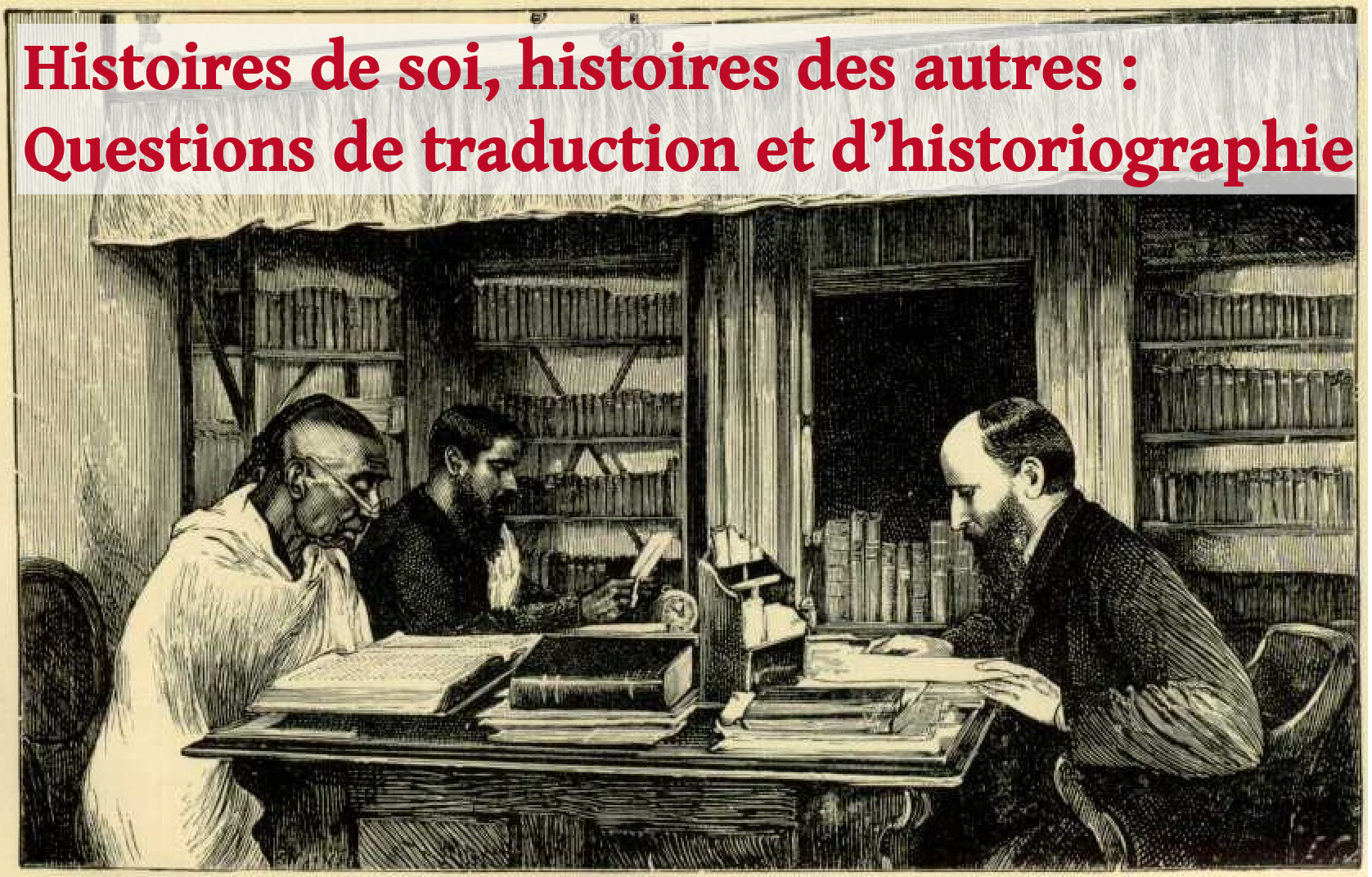Cycle - Histoires de soi, histoires des autres : questions de traduction et d’historiographie [2014-2018] |
Poetics and the Past: Revisiting Historiographical Traditions in Early Kashmir
Shonaleeka KAUL
[Salle 640, 190 avenue de France 75013 Paris]
Conférence donnée dans le cadre de l'atelier "Histoires de soi, histoires des autres : questions de traduction et d'historiographie"
Traditional scholarly opinion has regarded Kalhana’s Rajatarangini, the twelfth-century Sanskrit chronicle of Kashmiri kings, as a work of history. This essay proposes a reinvestigation of the nature of the iconic text from outside the shadow of that label. It first closely critiques the positivist “history hypothesis,” exposing its internal contradictions over questions of chronology, causality, and objectivity as attributed to the text. It then argues that more than an empiricist historical account that modern historians like to believe it is—in the process bracketing out integral rhetorical, mythic, and didactic parts of the text—the Rajataranginishould be viewed in totality for the kavya(epic poem) that it is, i.e, as representing a specific language practice that sought to produce meaning and articulated the poet’s vision of the land and its lineages. The essay thus urges momentarily reclaiming the text from the hegemonic but troubled understanding of it as history—only to restore it ultimately to a more cohesive notion of historicality that is sensitive to the literary and consistent with textual contents. Toward this end, it highlights the concrete claim to epistemic authority that is asserted both by the genre of Sanskrit kavyagenerally and by the Rajataranginiin particular, and their conception of the poetic “production” of the past that bears a striking resonance with constructivist historiography. It then traces the intensely intertextual and value-laden nature of the epistemology that frames the Rājataranginiinto a narrative discourse on power and ethical governance. It is in its narrativity and discursivity—its meaningful representation of what constitutes “true” knowledge of time and human action—that the salience of the Rajataranginimay lie.
Les sites du CEIAS
- SAMAJ | The South Asia Multidisciplinary Academic Journal
- CEIAS - Facebook
- CEIAS - Twitter
- CEIAS - Newsletter
- Le Bulletin de la Bibliothèque
- Régionalisme & cosmopolitisme
- DELI | Dictionnaire Encyclopédique des Littératures de l’Inde
- DHARMA | The Domestication of “Hindu” Asceticism and the Religious Making of South and Southeast Asia
- TST | Texts Surrounding Texts
- STARS | Studies in Tamil Studio Archives and Society 1880-1980
- I-SHARE | The Indian Subcontinent’s Shared Sacred Sites
- Sri Lanka et diasporas
- Sindhi Studies Group
- Carnet du Master Études asiatiques
- Master “Asian Studies”
- Social Sciences Winter School in Pondicherry
- Caste, Land and Custom
- Musiques indiennes en terres créoles
 Actualités
Actualités
Devenir juifs : conversions et assertions identitaires en Inde et au Pakistan
 Débat - Mardi 9 mai 2023 - 14:00Présentation« L’an prochain à Jérusalem ! », scande un homme portant une kippa dans une synagogue de Karachi au Pakistan. Ses paroles sont répétées en chœur par les membres de sa communauté, un groupe comptant près de trois cents personnes qui s’autodésignent par (...)(...)
Débat - Mardi 9 mai 2023 - 14:00Présentation« L’an prochain à Jérusalem ! », scande un homme portant une kippa dans une synagogue de Karachi au Pakistan. Ses paroles sont répétées en chœur par les membres de sa communauté, un groupe comptant près de trois cents personnes qui s’autodésignent par (...)(...)
Le Centre d'études sud-asiatiques et himalayennes (Cesah), nouveau laboratoire de recherche (EHESS/CNRS) sur le Campus Condorcet
Échos de la recherche -Depuis le 1er janvier 2023, l'EHESS, en tant que co-tutelle, compte un nouveau centre de recherche né de la fusion du Centre d'études de l'Inde et de l'Asie du Sud (CEIAS - EHESS/CNRS) et du Centre d’études himalayennes (CEH - CNRS) : le Centre d'études sud-asiatiques et h (...)(...)
Centre d'Études de l'Inde et de l'Asie du Sud
UMR8564 - CNRS / EHESS
54 boulevard Raspail
75006 Paris, France
Tél. : +33 (0)1 49 54 83 94
Communication :
nadia.guerguadj[at]ehess.fr
Direction :
dir.ceias[at]ehess.fr
La bibliothèque du CEIAS
Maison de l'Asie
22 avenue du Président Wilson 75016 Paris
54 boulevard Raspail
purushartha[at]ehess.fr



